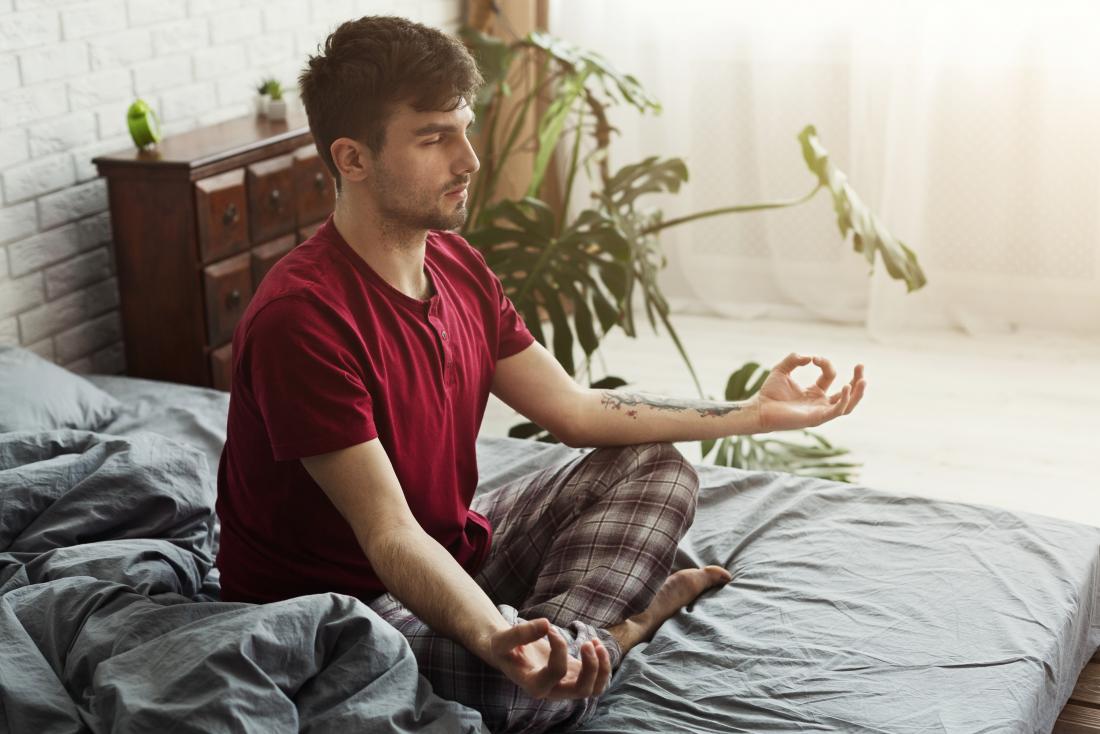 Leave Your Bed
Leave Your Bed
That’s right. If you cannot fall back asleep in 15 or 20 minutes, get up and go somewhere else. Have a guest room? Great. Go there. But a couch will also do. One of the worst things you can do if you’re having a hard time sleeping is to stay in bed and think about not being able to sleep. “Don’t lay there struggling because your brain will learn ‘This is the boxing ring where we fight the sleep every night,’” says Dr Singh. “The bed is for sleep or intimacy. Not sleeping, no intimacy? Don’t be in bed. That’s how you teach your brain to relate your bed to sleep. The longer you lie there, the more your stress will mount and the worse your chances will be of falling asleep.
Don’t Look at the Clock

This is tricky, but it’s important. If you understand what time it is, you will likely start to think “oh, it’s 4:15, maybe I can get two hours of sleep before I have to get up,” and perpetuate the vicious cycle. “It’s so important to resist the temptation to look at the clock,” says Dr. Singh. “As it will only make you realize how much sleep you have missed.” That means, yes, resisting the temptation to look at your phone.
Avoid Screens or Harsh Lights

One of the keys to Good Sleep 101 is limiting the amount of light you receive before bed. But this also remains true when you’re having trouble sleeping. Light is a natural signal to our body that it’s time to rise and it decreases the slow drip of melatonin we receive. So, avoid turning on any bright lights (installing a dim motion-sensor light in the bathroom might be of interest) and scrolling on your phone to pass the time. The latter is especially true, as reading the news or seeing headlines at night, especially in our particularly high-strung era, will only increase stress.
Read a Book or Listen to a Podcast

Once on a couch or in another room, crack open a book or listen to a podcast. Either will focus your mind to make you stop thinking about sleeping and let sleep come to you. “It will draw your attention so that you’re not worrying about sleep and thus let sleep naturally come,” says Dr Singh.
Try The 4-8 Breathing Technique…

The name of the game when you can’t sleep is calming yourself down. One of the best ways to do that — in the middle of the night or anytime you’re feeling stressed — is to do some deep breathing. Dr Singh recommends a simple 4-8 technique. That is, slowly inhale while counting to four seconds, and then exhale for eight seconds. “What you’re doing is slowing down your breathing to reduce the cortisol level and inducing a state of calm,” he says. “Plus your brain is locked onto that process.”
…Or Some Progressive Deep Muscle Relaxation
Similar to deep breathing is this relaxation technique that’s often used in anxiety management. The idea is, starting from your toes and moving up to your ankles, knees, thighs, and every other muscle that you can voluntarily control or tense, you clench them for three seconds and then relax. you count to three and relax. “Again, this is a Cognitive Behavioral Therapy that’s intended to focus your mind on the clenching while relaxing all the muscles in your body,” say Dr. Singh. “It’s relaxing and hard to drift away into other thoughts while focusing on this.”
Try Some White Noise
Another way to give your mind a focal point is to use some white noise. Maybe it’s rain. Maybe it’s the wind. Maybe it’s a crackling fire. Maybe it’s just the drone of the fan. Whichever you chose, listening to a constant sound is an excellent way to draw the mind’s attention and calm it down enough for sleep to arrive.
Moving Forward
Proper sleep hygiene is the key to appropriate restorative rest. If you’re not adhering to good principles during the day — avoiding screens before bed, limiting caffeine, not getting enough sunlight, not working out enough, and so on — sleep will be hard to achieve. “The brain loves routine,” says Dr Singh. “And only when one follows proper steps during the day will they see fewer problems during the night.”
If you suffer from chronic insomnia, don’t expect a quick fix all of a sudden. “You can’t develop a six-pack in two days at the gym,” says Dr Singh. “It’s a process to get back on track. But with good routines, you can get there.” If you’re still struggling, it may be time to talk to a sleep doctor. Help is out there.
Join Sneh Chaudhry in Mahekta Aanchal from 9 am to 2 pm on Radio Sargam on 103.4FM in Suva to Nausori Corridor, Central Division, Nadi, Lautoka & Labasa, 103.2FM in Sigatoka, Coral Coast, Ba, Vatukoula, Tavua & Savusavu and 103.8FM in Rakiraki.
Reader's opinions
 Leave Your Bed
Leave Your Bed


